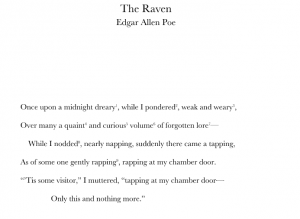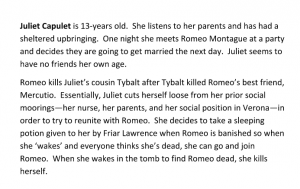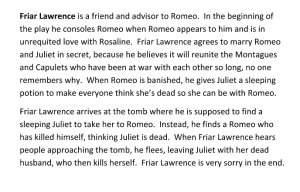There are so many elements to a written work. A story has plot structure, characters, setting, main ideas and themes that might draw a reader in. A poem is concerned with images and metaphor to express an emotion or idea. But the most important part are the words themselves. If the author didn’t choose the right words, they might not get their ideas across to the reader. For instance, would you describe the Arctic as cold? Or would you describe it as a frigid? Which word is more effective?
This is a question we tackled with Jon Krakauer’s Into Thin Air. Before reading an excerpt, we talked with students at Jefferson Traditional about word choice. Why is it important to use accurate and descriptive words?
From there, we gave students an edited excerpt from Krakauer’s book. These excerpts contained words not found in the original text. Instead the students were tasked with changing the words to be more effective, descriptive, and accurate. Once they came up with their changes, we gave the students the original text to compare.
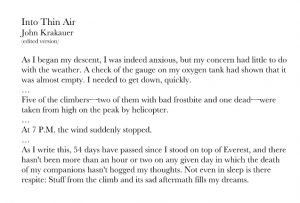
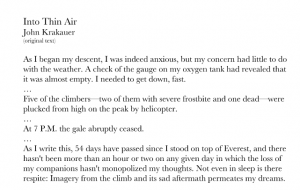
By the end of the lesson, the students better appreciated the difference between the altered text and the original version. Students made comparisons between “bad” and “severe” and the appropriate context of each.

